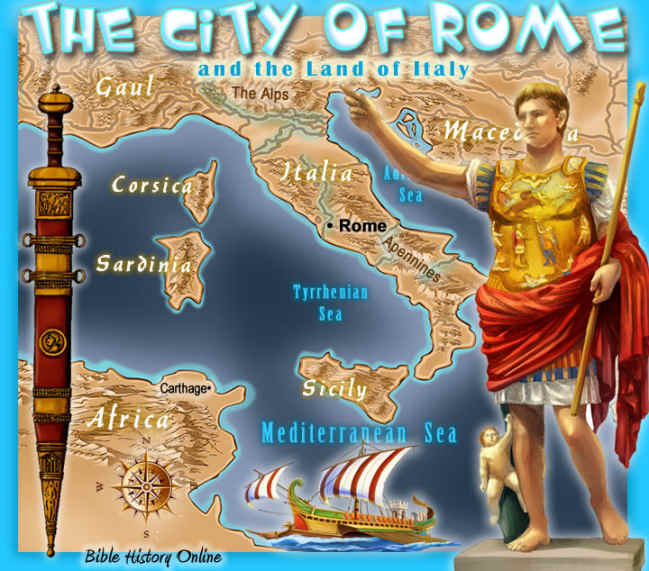+ Blue Letter Bible/KJV + 개역한글 성경구절
글 수 25
2024.5.6 15:46:04

▶ 알렉산더대왕 Alexander the Great. [Alexan'der the Great]
BC356 필리포스 2세와 왕비 올림피아스 사이에서 알렉산더 출생
BC336 20세 마게도니아 왕으로 재위
BC334 소아시아로 진군
BC333 이수스 전투 페르시아 왕 다리우스 3세 격파
BC332 가을 이집트 정복후 알렉산드리아 시 건설
BC331 봄 아르벨라 전투 페르시아 군 격파
BC330 페르시아 멸망
BC326 겨울 인더스 강 상류로 인도 진군
BC324 바빌론으로 회군
BC323 봄 바빌론 수도로 정함
BC323.6월 33세 열병으로 사망
이후 헬레니즘 왕국이
마케도니아의 카산드로스( 안티고노스)왕조 ,
시리아의 셀레우코스왕조,
이집트의 프톨레마이오스 왕조로 분열
This conqueror is not mentioned by name in scripture, but his kingdom is certainly referred to in prophecy, principally in Daniel, some 200 years before he was born. It is first spoken of as a part of the great image seen in a dream by Nebuchadnezzar; it is foreshadowed by the belly and thighs, which are of brass, a depreciation in the character of the kingdom in comparison with the empires of Babylon and of the Medes and Persians, though it was larger in extent: it "shall bear rule over all the earth." Dan. 2:32, 39. It is also compared to a leopard which had four heads and four wings of a fowl. The leopard is distinguished for its blood-thirstiness and tearing its prey : this indeed magnifies the contrast in the millennium when it will lie down with the kid. Isa. 11:6. Also remarkable for its swiftness of action: 'their horses also are swifter than the leopards.' Habakkuk 1:8. These characteristics exactly agree with the character and actions of Alexander. The four heads and four wings refer to the extension of the kingdom to the four winds of heaven, as it was divided among four of his generals after his death. Dan. 7:6. Again in Dan, 8., where the kingdom of Media and Persia is compared to a ram, Greece is compared to a he goat, with a great horn, which is its first king, Alexander, Dan. 8:21. Here again we get his character described: so swift that he 'touched not the ground,' he rushed against the ram 'with choler,' cast him to the ground and stamped upon him. Dan. 8:5-8. In Zech. 6:2, 3, the four great monarchies are alluded to, and the third, the kingdom of Greece, is compared to a chariot with white horses.
(단02:32. 39 32그 우상의 머리는 정금이요 가슴과 팔들은 은이요 배와 넓적다리는 놋이요, 39왕의 후에 왕만 못한 다른 나라가 일어날 것이요 세째로 또 놋 같은 나라가 일어나서 온 세계를 다스릴 것이며
(사11:6 그 때에 이리가 어린 양과 함께 거하며 표범이 어린 염소와 함께 누우며 송아지와 어린 사자와 살찐 짐승이 함께 있어 어린 아이에게 끌리며
(합01:8 그 말은 표범보다 빠르고 저녁 이리보다 사나우며 그 기병은 원방에서부터 빨리 달려오는 기병이라 마치 식물을 움키려하는 독수리의 날음과 같으니라
(단07:6 그 후에 내가 또 본즉 다른 짐승 곧 표범과 같은 것이 있는데 그 등에는 새의 날개 넷이 있고 그 짐승에게 또 머리 넷이 있으며 또 권세를 받았으며
(슥06:2,3 첫째 병거는 홍마들이, 둘째 병거는 흑마들이, 세째 병거는 백마들이, 네째 병거는 어룽지고 건장한 말들이 메었는지라
Alexander the Great, son of Philip II. and Olympias, was born at Pella B.C. 356; became king of Macedon on the assassination of his father in 336: subdued the Greeks in 335; defeated the Persians, 334; took Tyre; conquered Syria and Egypt, and founded Alexandria 332; defeated Darius in 331; conquered Parthia, Media, Bactria, and invaded India, 330-324, sought fresh conquests, but died at Babylon in 323. These dates show the rapidity of his conquests, agreeing with the above scriptures. As to his cruelty let one instance suffice: at the capture of Tyre which then belonged to Persia, provoked by the long resistance and valiant defence, 8,000 of the inhabitants were massacred, 2,000 being crucified: of the rest, except those who escaped by sea, 30,000 were sold into slavery, the king and the chief magistrates were spared, doubtless as trophies. This was the work of the 'leopard' of scripture. While besieging Tyre Alexander sent to demand the submission of the Jews; but was told they were faithful vassals of Darius. After the conquest of Gaza, the conqueror marched to Jerusalem. The high priest Jaddua, being warned of God in a vision, hung the city with garlands and went forth in his robes with the other priests and the people in white to meet the king. On seeing these Alexander was arrested, fell to the ground and then embraced the high priest. In reply to an astonished courtier, Alexander said he did not worship the priest, but the name on his frontlet, and explained that he had seen in a vision a figure resembling this very priest, who told him to conquer Persia. He granted the Jews in Palestine, Media and Babylonia the free enjoyment of their laws and exemption from tribute during the Sabbatical year. Such is a rapid sketch of how prophecy and history agree. The empire of Greece had thus to do with God's ancient people the Jews, and formed a link in the chain of kingdoms until the Messiah Himself appeared and laid the foundation for His kingdom that shall endure for ever.
--- Morrish Bible Dictionary
개역한글KHRV( 120일1독, 1년1독, 권별, 성경통독 )
STUDY - 구절(WESLEY), 단락(MATTHEW), 읽기(Wayne),
Dictionary - Chapter, OT구약, NT신약, 테마별,
(*.117.204.3)
|
.
성경연대표
1.창조
2.족장
3.출애굽
4.광야
5.정복
6.사사
7.통일왕국
8.분열왕국
9.포로
10.포로귀환
11.중간
12.예수
13.초대교회
14.세계선교
관련그림.지도 1.창조
2.족장
3.출애굽
4.광야
5.정복
6.사사
7.통일왕국
8.분열왕국
9.포로
10.포로귀환
11.중간
12.예수
13.초대교회 Ani
1창세기[Genesis] 2출애굽기[Exodus] 3레위기[Leviticus] 4민수기[Numbers] 5신명기[Deuteronomy] 6여호수아[Joshua] 7사사기[Judges] 8룻기[Ruth] 9사무엘상[I Samuel] 10사무엘하[II Samuel] 11열왕기상[I Kings] 12열왕기하[II Kings] 13역대상[I Chronicles] 14역대하[II Chronicles] 15에스라[Ezra] 16느헤미아[Nehemiah] 17에스더[Esther] 18욥기[Job] 19시편[Psalms] 20잠언[Proverbs] 21전도서[Ecclesiastes] 22아가[Song of Solomon] 23이사야[Isaiah] 24예레미야[Jeremiah] 5예레미아애가[Lamentations] 26에스겔[Ezekiel] 27다니엘[Daniel] 28호세아[Hosea] 29요엘[Joel] 30아모스[Amos] 31오바댜[Obadiah] 32요나[Jonah] 33미가[Micah] 34나훔[Nahum] 35하박국[Habakkuk] 36스바냐[Zephaniah] 37학개[Haggai] 38스가랴[Zechariah] 39말라기[Malachi] 40마태복음[Matthew] 41마가복음[Mark] 42누가복음[Luke] 43요한복음[John] 44사도행전[Acts] 45로마서[Romans] 46고린도전서[I Corinthians] 47고린도후서[II Corinthians] 48갈라디아서[Galatians] 49에베소서[Ephesians] 50빌립보서[Philippians] 51골로새서[Colossians] 52데살로니가전서[I Thessalonian] 53데살로니가후서[2 Thessalonian] 54디모데전서[I Timothy] 55디모데후서[II Timothy] 56디도서[Titus] 57빌레몬서[Philemon] 58히브리서[Hebrews] 59야고보서[James] 60베드로전서[I Peter] 61베드로후서[II Peter] 62요한일서[I John] 63요한이서[II John] 64요한삼서[III John] 65유다서[Jude] 66요한계시록[Revelation]

 , 성경권별
, 성경권별 

